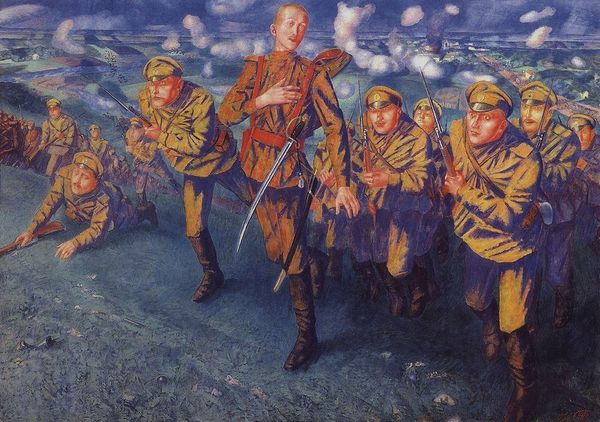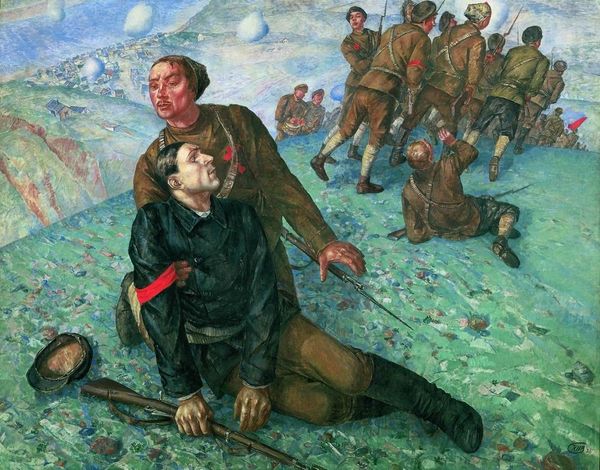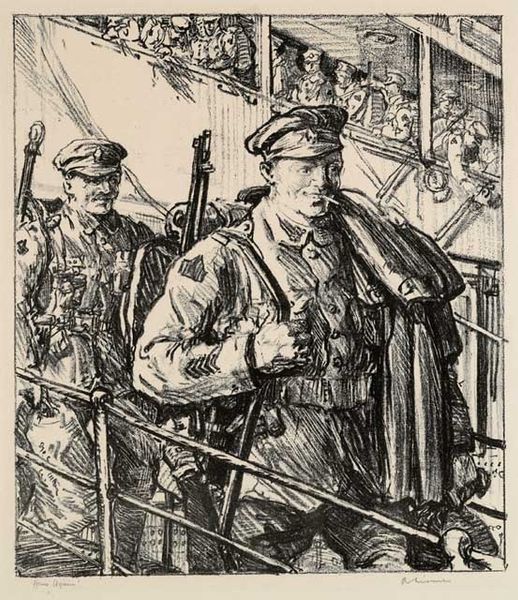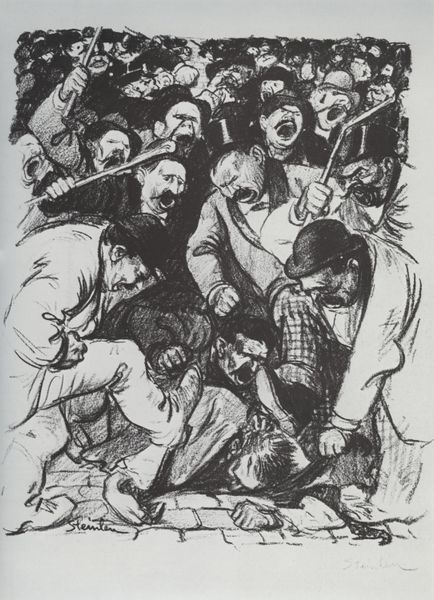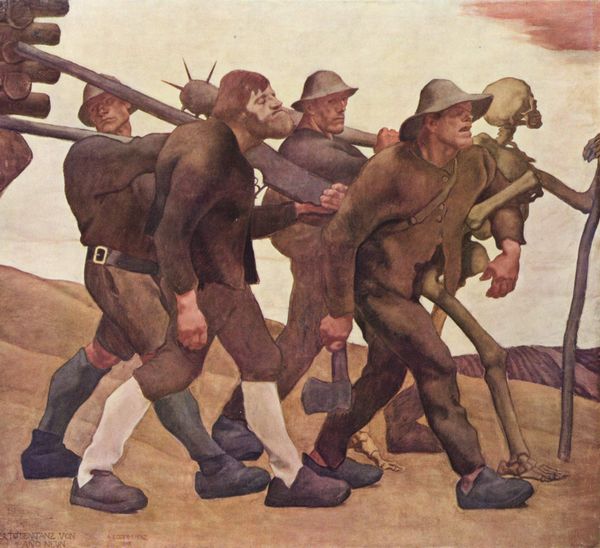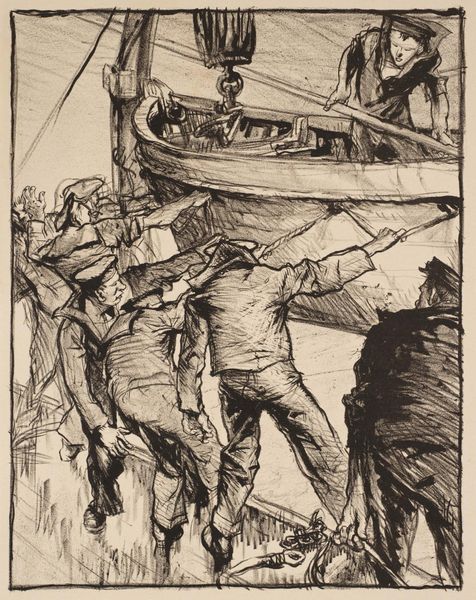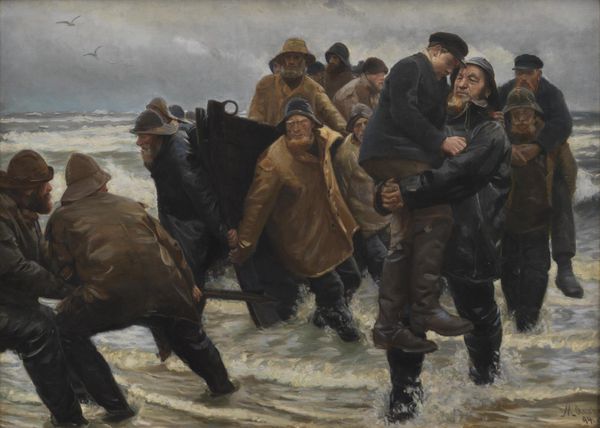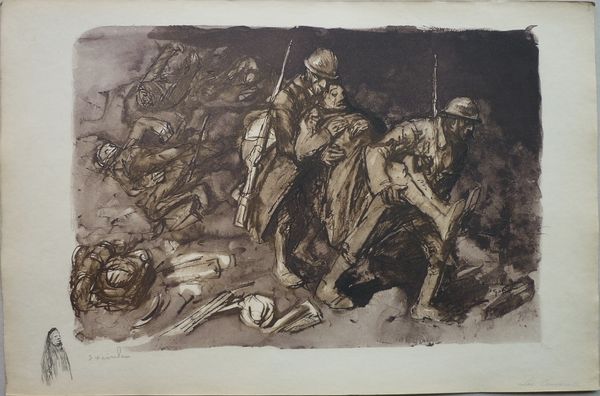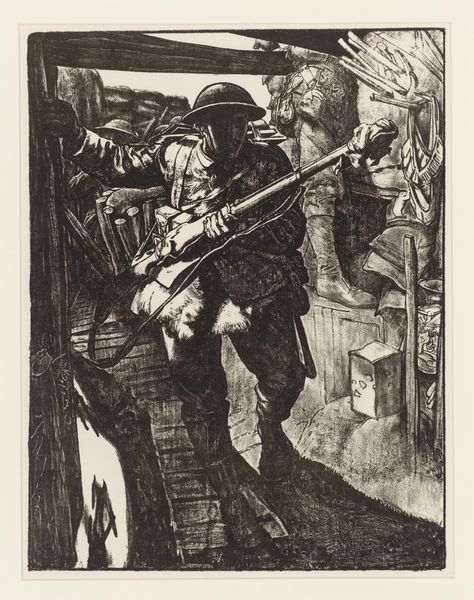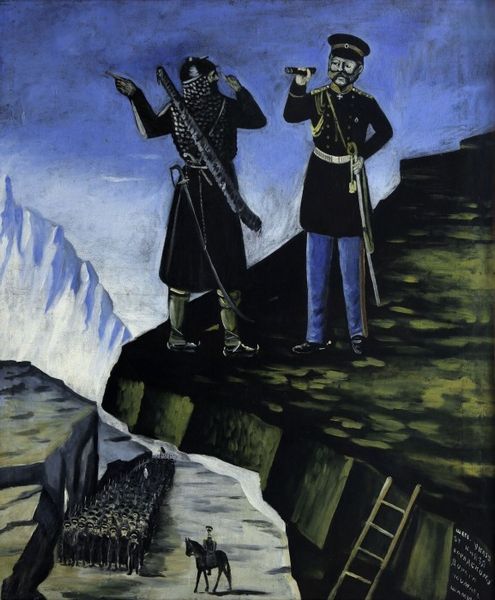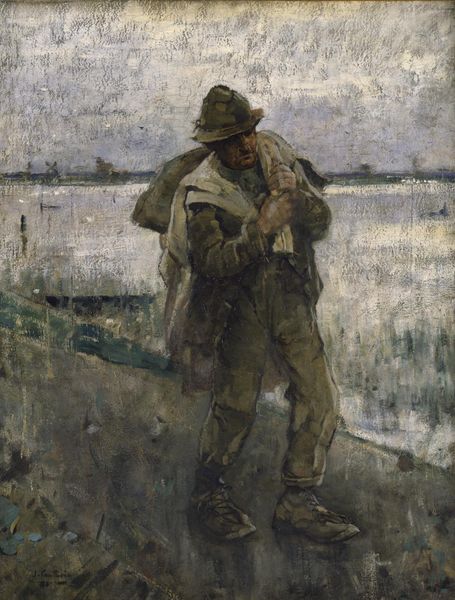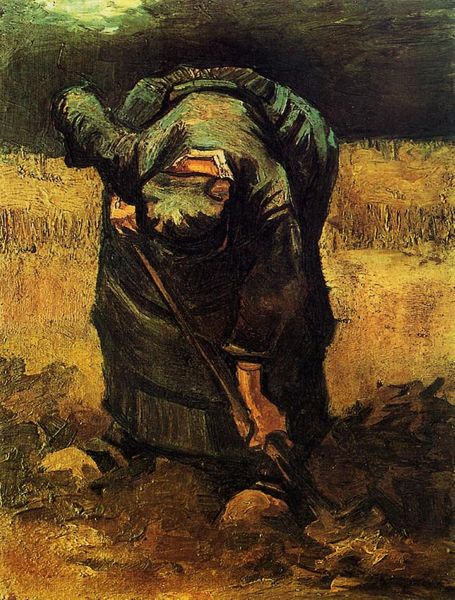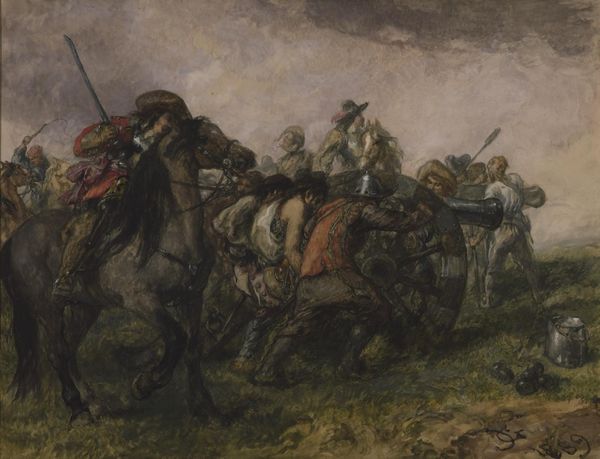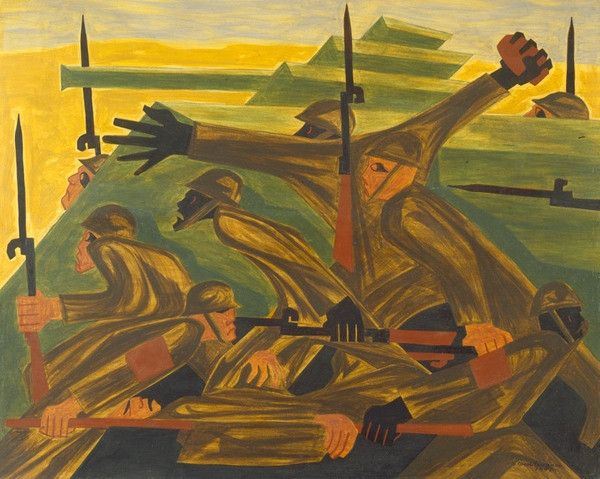
painting, oil-paint
#
narrative-art
#
painting
#
oil-paint
#
soviet-nonconformist-art
#
figuration
#
oil painting
#
history-painting
#
realism
Copyright: Public domain
Curator: This powerful work, painted in oil by Kuzma Petrov-Vodkin in 1928, is titled "Death of Commissioner." It's a striking example of Soviet Nonconformist art. Editor: My first thought is, it feels like a memory. Dreamlike, even, with those hazy shapes in the background. Sort of like when you’re running a fever. Curator: That feverish quality connects, I think, with the turbulent period it depicts. It can be viewed as a history painting which certainly presents an opportunity to discuss the representation of violence and loss within the broader narrative of revolution and social upheaval. Editor: Loss, yes, definitely that. There's a fragility in the fallen man's face that's really haunting. It’s weird, but it almost feels…gentle. Like he's just sleeping. Curator: Well, Petrov-Vodkin often challenged the heroic, socialist realist style favored at the time. I wonder if his intention wasn’t simply glorification but an acknowledgement of the very human cost of ideological conflict, which seems relevant in any political era. Editor: You’re right, and the man holding him seems suspended between grief and some grim determination. I wonder, does his upward gaze suggest some kind of hope? Or just the need to carry on? Curator: Both? Ambiguity can be powerful. The way Petrov-Vodkin uses a sort of distorted perspective actually intensifies that feeling for me. Editor: It definitely makes the scene feel a bit unsettling, like the ground is shifting beneath them. Makes you wonder what they were actually fighting *for*. Curator: It invites us to reflect on the individual stories overshadowed by larger historical movements. Considering the ongoing impacts of revolution, we might contemplate the value we assign individual human lives within political causes. Editor: I agree. Looking at it now, it’s not just a picture of death, but of sacrifice. And maybe also a warning. Art’s good like that, eh? Curator: It does offer valuable opportunities to challenge, reflect and reconsider the narratives we accept about both history and ourselves. Editor: Cheers to that. Time for tea, I think.
Comments
No comments
Be the first to comment and join the conversation on the ultimate creative platform.
